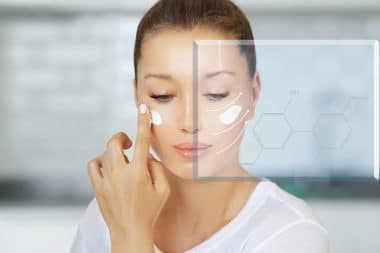Your skin is your body’s largest organ and the only one that is directly exposed to the elements all day, every day, throughout your entire life. People have different skin types, with different needs and sensitivities, but the universal commonality is that we all require regular skin maintenance and care to ensure healthy, glowing skin.
Whether you are new to skincare or have been experimenting with and optimizing your skincare regimen over the course of a lifetime, there are certain things everyone should do, every day, to look after the skin they’re in. Below are some of the best tips for everyday skin health to work into your routine.
Skin Care in the Age of the Tattoo
Tattoos, along with piercings, are one of the most popular forms of body art and personal expression. The number of people between the ages of 18 and 35 with at least one tattoo has grown considerably in the last several decades, which means there are now exponentially more people out there with the unique skin care needs that are part and parcel of having tattoos.
The most precarious phase of a new tattoo is the first couple of weeks, when raw skin is exposed to the elements and in need of extra care and protection. First-timers often struggle to take adequate care of their new ink and investment, including knowing which lotions and creams to apply, which is why it makes sense to consult experts with years of experience in caring for recently tattooed skin.
Stay Hydrated
This is one of the easiest and least-involved components of adequate daily skincare, but also one that tends to be most neglected. In fact, the majority of adults admit that they do not drink adequate water throughout the day.
The cascading effects of dehydration are many, and include lethargy and decreased cognitive function, but poor hydration can also have dire consequences for your skin. Your body is predominantly water, which it also loses a tremendous amount of every day. Keeping a reusable hard-plastic water bottle with you at all times and drinking from it frequently should be considered part of good skincare.
Moisturize With Sunblock
If you already moisturize daily, your skin thanks you. But if you are not using a moisturizer with a sufficient SPF (based on where you live), you are selling your skin short. Sadly, applying sunblock is not something that most people think of doing on a daily basis. If you live in a cool or temperate climate, sunblock is something you apply on summer holidays, or when visiting warmer latitudes. Unfortunately, the sun and UV rays act upon your skin every day, everywhere, irrespective of location.
Obviously, there are certain parts of the world that are closer to the sun (i.e, the equator) than others and some with reduced ozone protection (Australia) where you are taking stronger UV rays. But you should be protecting your skin from the sun even in the northern hemisphere. Make sure you are choosing a moisturizer that offers enough SPF protection for where you live and where you are going.
Avoid Hot Water Showers
For hundreds of millions of people around the world who live close to the equator, a hot shower makes no sense, is a considerable luxury, or is only occasionally feasible. When it’s sweltering all day every day, your body craves cold water, not hot. For those of us who live in colder climes, however, the thought of stepping into frigid water in the morning or before bed makes us shudder.
With bathing, it largely comes down to what you accustom yourself to, but you really should be trying to keep your shower and bath water as close as possible to luke-warm, no matter where you live. Hot showers can damage the keratin cells in your epidermis, hindering their ability to lock in moisture and ultimately resulting in dryness. If you already suffer from dry skin, hot showers just exacerbate the problem.
Eat for Healthy Skin
What we put into our bodies almost invariably shows up in our skin. It is very unlikely that someone with radiant, healthy skin has a poor diet. Foods high in amino acids (e.g., fish oils), for instance, help to produce collagen, which maintains skin’s elasticity and healthy permeability. Healthy collagen is particularly important for people who regularly suffer from acne outbreaks and blemishes.
Cruciferous vegetables such as cabbage, kale and broccoli also benefit the skin by aiding liver function and detoxification, as do fibrous vegetables and legumes by ensuring healthy gut microbiota and improving gastrointestinal function.
Conclusion
You don’t need to spend hundreds of dollars on organic cosmetics and dedicate hours a day to lengthy skin-care regimens. There are simple lifestyle tweaks that anyone can make to improve the look, feel and overall health of their skin. Keep the above everyday skin health tips in mind, and with some minor adjustments to your daily routine, you can give your body’s biggest organ all of the defenses it needs to take everything life throws at it and remain healthy.








Reply